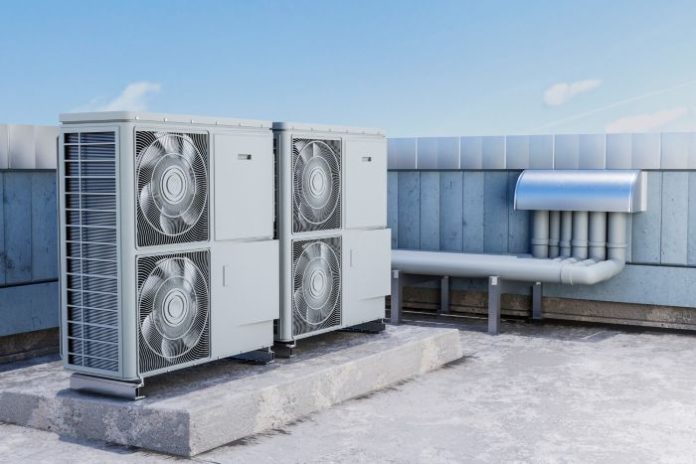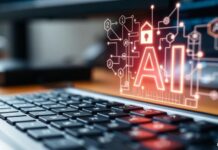Artificial intelligence is transforming the HVAC industry, creating new opportunities and challenges that prepare techs for the future.
Adapting to this change requires updated skills and a forward-thinking approach. Companies need to prepare their teams to work confidently with advanced technologies shaping the field.
In this article, we’ll discuss practical ways to ensure your technicians and new hires are ready for AI-driven HVAC work.
Table of contents
Utilize Digital Twin Technology to Prepare Techs
HVAC certification courses teach prospective technicians things like system installation, maintenance, and repair.
They will also learn about electrical wiring, refrigerant handling, and component troubleshooting. Also, safety practices and hands-on training will prepare them for real-world tasks in the field.
And at this HVAC school in Arizona, they can use Meta Quest 2 virtual reality (VR) technology to learn troubleshooting techniques.
VR can also include digital twin technology.
AI-powered digital twins replicate physical HVAC systems virtually, letting students observe system performance without accessing live equipment. It’s like practicing on a flight simulator before piloting an actual plane.
AI enables predictive analysis within these models, helping learners see how changes impact functionality or spot issues faster, which are essential skills to possess as systems grow more complex with automation trends.
Train Technicians on AI-Powered Diagnostics Tools

AI-powered diagnostics tools are transforming how HVAC systems are monitored and maintained. These tools use machine learning algorithms to analyze real-time data from sensors, identify inefficiencies, and predict potential failures before they occur.
Training technicians to utilize these systems is crucial. They need to understand how AI interprets system data, generates alerts, and recommends corrective actions.
This training to prepare techs should focus on both the software interface and interpreting the insights it provides.
For example, some smart thermostats can report irregularities or energy usage spikes directly through AI platforms.
Technicians trained in these technologies will troubleshoot issues more efficiently while ensuring optimal performance for clients’ systems—key advantages as smart building adoption continues growing in commercial spaces.
Focus on Cybersecurity Training for Smart HVAC Systems
As HVAC systems become more connected through IoT and AI technologies, cybersecurity becomes a critical concern.
Technicians must understand how to safeguard these smart systems from potential threats. So, training should include recognizing vulnerabilities in networked devices, securing access points, and following best practices for data protection.
For instance, a workshop might teach technicians how to implement strong authentication protocols or update firmware to patch security flaws.
Cybersecurity training not only protects sensitive client data but also ensures the reliability of automated systems—an essential skillset as reliance on interconnected HVAC solutions continues growing in both residential and commercial settings.
Build a Mentorship Program with Experienced AI Technicians
Pairing less-experienced technicians with those skilled in AI-driven systems bridges knowledge gaps effectively.
Mentors offer hands-on guidance and real-world insights that complement formal training sessions. They can demonstrate advanced techniques, troubleshoot issues together, and share their practical experiences working with AI tools.
For instance, a mentor might explain how they use data trends from an AI platform to adjust HVAC settings for efficiency gains or avoid unnecessary repairs.
This collaborative approach boosts confidence among newer team members while reinforcing expertise within the workforce—fostering both skill development and teamwork in adopting evolving technologies.
Provide Ongoing Workshops for Staying Current
Hosting regular workshops helps technicians keep up with the latest AI tools and methods.
Workshops can focus on practical skills like using AI-driven monitoring platforms or understanding new machine learning-based predictive maintenance software.
And including hands-on demonstrations ensures that attendees grasp real-world applications, not just theory.
For example, a session might cover advanced fault detection where technicians interpret data from AI diagnostics to pinpoint inefficiencies.
Updates on IoT integration in smart buildings could also be included since these systems rely heavily on automated control powered by artificial intelligence.
These ongoing educational efforts build adaptability among your workforce, preparing them to handle both current challenges and future innovations confidently as HVAC systems continue advancing alongside technology trends globally.
Final Thoughts
Preparing technicians for AI-driven HVAC work ensures they stay competitive in a rapidly evolving industry.
By focusing on advanced training, hands-on practice, and ongoing education, companies can equip their teams with the skills needed to thrive.
Investing in these strategies today that fully prepare techs helps build a workforce ready to embrace future innovations and deliver exceptional service tomorrow.











